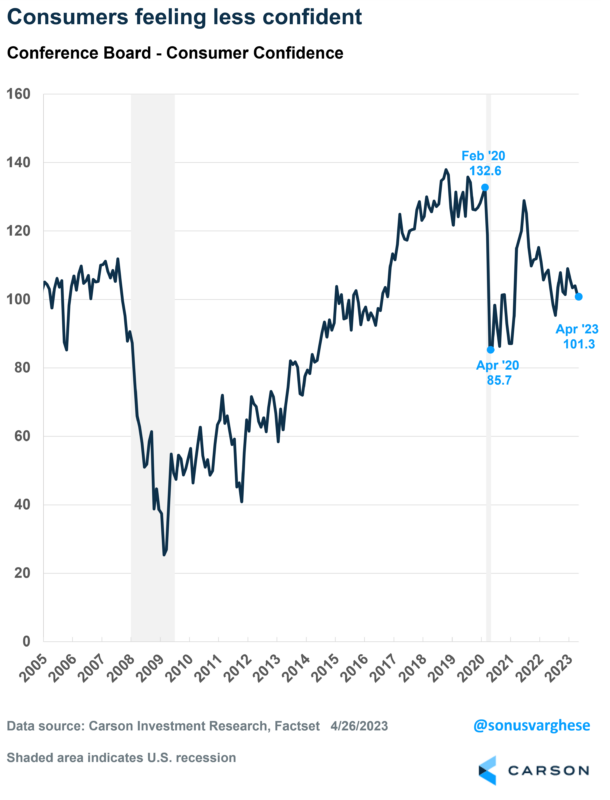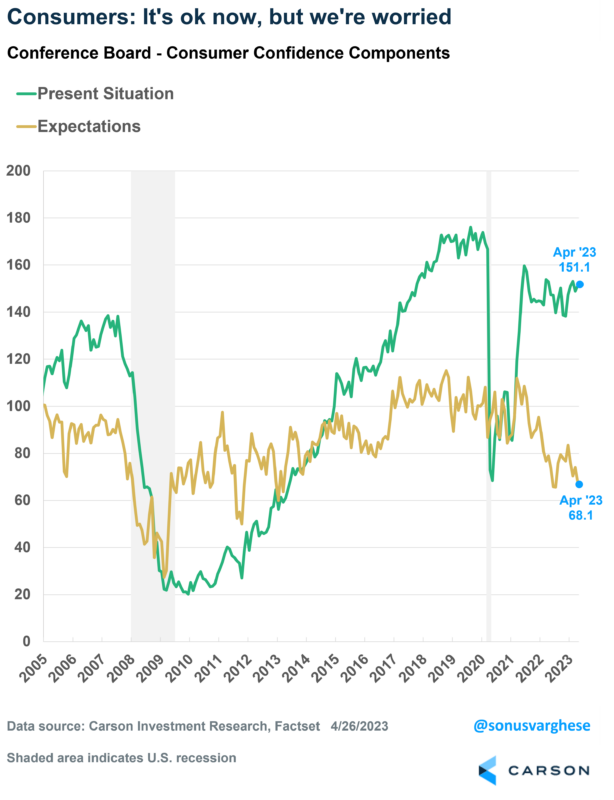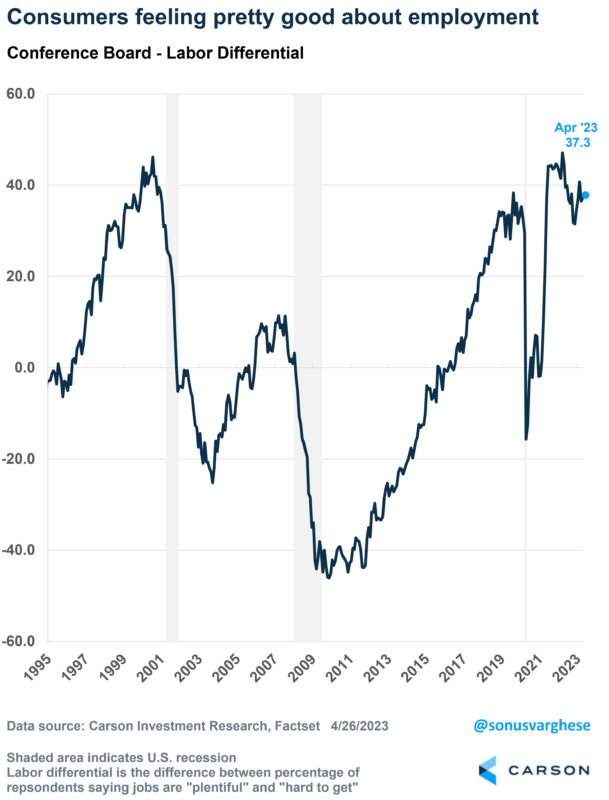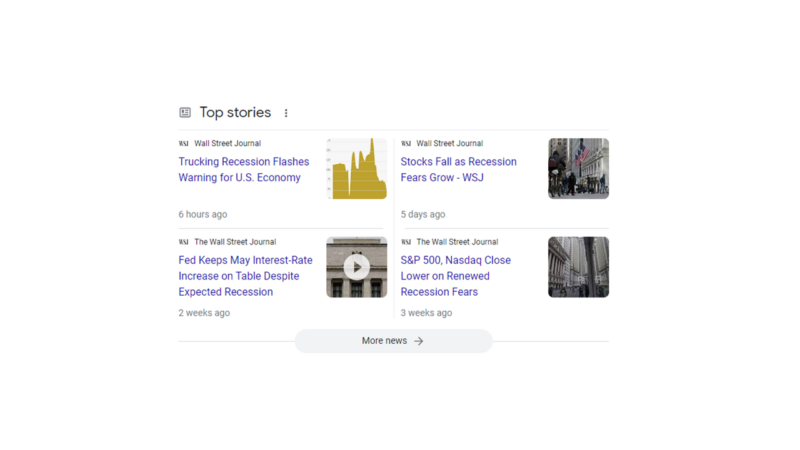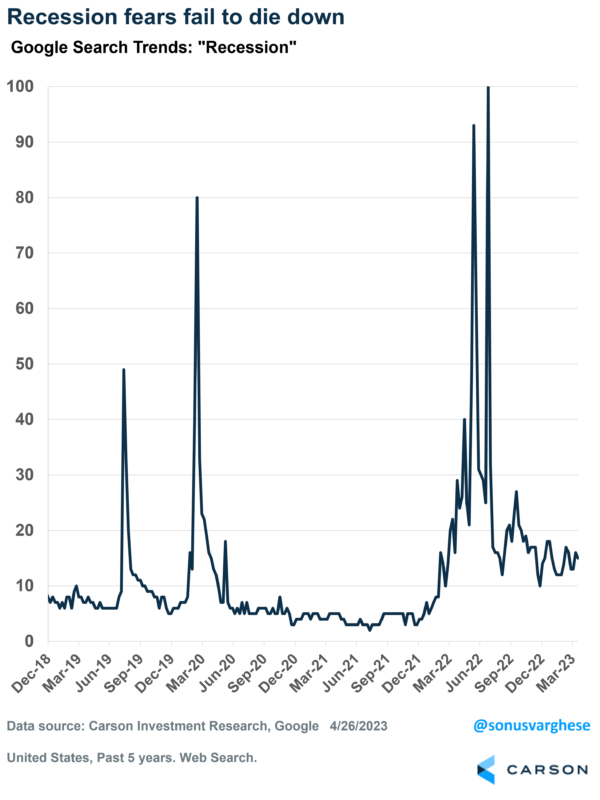The Conference Board just released its consumer confidence index for April, and the data wasn’t great. The index fell from 104 to 101.3, and it is well off last December’s 109 level. Not to mention the fact that it’s more than 30 percentage points below where the index was in February 2020 (just before the pandemic). The only solace is that confidence is not as low as it was in mid-2020, after the pandemic hit.
The story under the headline
Poke under the hood of the confidence numbers and it turns up something interesting. The index is made up of two pieces:
- The Present Situation Index – based on consumers’ assessment of current business and labor market conditions
- The Expectations Index – based on consumers’ short-term outlook for income, business, and labor market conditions
The Present Situation index actually increased in April, from 148.9 to 151.1, continuing a general uptrend that began in December. As you can see in the chart below, it’s lower than where it was before the pandemic but its even further away from the pandemic lows. In short, consumers feel ok about current conditions for business and employment.
Where things fall off is the Expectations Index, which fell from 74.0 to 68.1, continuing a downtrend that began in January. Even worse, it is close to the lows we saw since the pandemic hit – this was actually last year in July, when inflation was close to the highest levels in 40+ years. In short, consumers don’t feel good about the future.
Consumers are feeling really positive about the employment situation
The survey also asks participants about their opinion of the labor market.
- 48.4% said jobs were “plentiful”, up from 47.9% last month.
- 11.1% of consumers said jobs were “hard to get”, down from 11.4% last month.
Good news, right? In fact, the difference between the two is called the “labor differential”, and that measures 37.3% as of April. Here’s some perspective on that and I’ve extended the chart below all the way back to 1995 to illustrate this. The current level is close to the highest level we saw before the pandemic (in August 2019), when the labor market was strong. And it’s close to the levels we saw in late 1990’s when the labor market was in really good shape amid a booming economy.
This is not to say the economy is booming right now, but the question is whether this much pessimism about the future is warranted.

Stay on Top of Market Trends
The Carson Investment Research newsletter offers up-to-date market news, analysis and insights. Subscribe today!
"*" indicates required fields
As my colleague, Ryan Detrick, noted on our latest Facts vs Feelings episode, last year, the Fed was making the most aggressive rate hikes in 40 years, inflation was really high, China was in lockdown mode which hurt supply chains. That’s all reversing now. In fact, China’s economy grew more than expected in the first quarter, expanding at a 4.5% year-over-year pace. And as we’ve seen over the last few months, employment remains strong. The economy’s created more than a million jobs in the first quarter, and the unemployment rate is close to 50+ year lows – which is probably why consumers are feeling good about the labor market, as we saw above.
But recession fears dominate
I just typed the phrase “WSJ recession” into google and there was no shortage of stories just over the past month.
Of course, the fact that economists are predicting a recession has also gotten a lot of press.
Using google trends, I looked at how the term “recession” has trended over the past few years. It spiked in August 2019, and again in March 2020 (no surprise). And then it fell below where it was before the pandemic, before surging from March 2022 onwards. In fact, last year, google searches for “recession” were higher than it was in March 2020! And as you can see, recession concerns remain elevated.
Part of this maybe due to market volatility – which was probably why searches spiked in August 2019 (the S&P 500 fell more than 2.5% 3 times in that month and made more than 11 1% moves!).
We may have to wait for markets to recover to new highs before recession concerns are finally allayed. In the meantime, the good news is that consumers are not letting their pessimism impact current spending decisions. Consumer spending has been strong this year, thanks to real incomes rising amid lower inflation. We expect that to continue if employment holds up, in which case the economy should be able to avoid a recession. That will also be positive for markets.


